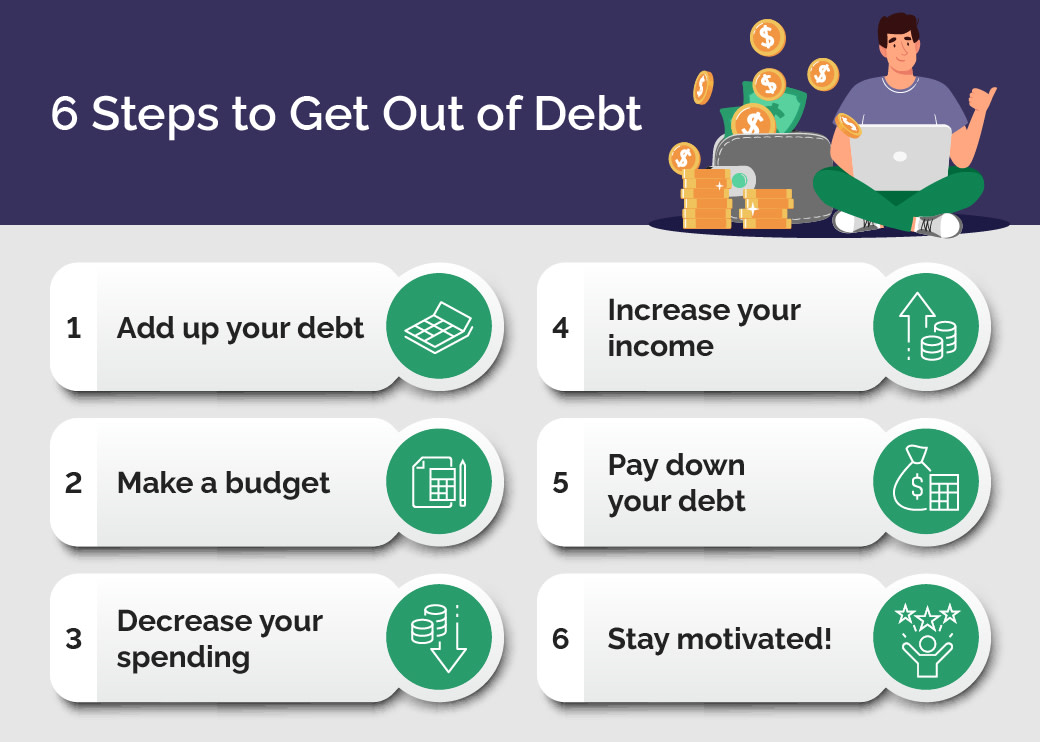Most people are unfamiliar with financial enlightenment, yet it is one of the most essential components of financial success. If you are searching for ways to manage your financial situation and expand your financial knowledge, here are five simple things to keep in mind.
Learn about Personal Finance
To manage your debt, you first need to garner knowledge about personal finance. However, try to learn only some things at a time. Break up your education into comprehensible chunks. If you can do that, then you can learn about the approaches to managing your debts and how to avoid them from accumulating.
Track Your Journey
To begin tracking your finances, write your expenditures and keep receipts. Alternatively, you can choose to use budget software or spreadsheets. What is important at this point is ensuring you record what you spend to ensure all your expenditures are accurately presented. Even the guilty splurges must be avoided so you can determine where exactly your money is being diverted. When it comes to tracking your expenditures, you need to be as honest with yourself as possible. Do not worry whether or not your expenditures were good or bad ones.
Budgeting
Once you have ascertained where your money goes, you can now begin to budget. Set up a spending plan so you can manage your finances and move ahead financially. It would help if you also started spending less while recording your income sources and the date or receipt. From there, you can determine the amount spent on necessities and bills and plan how you are going to save or spend the remaining funds. When you budget, you will be in a position to ensure a certain portion of your income is diverted towards settling your debts, thus preventing them from accumulating.
Cut Expenditure
While creating your budget, you will definitely come across sections of your expenditures where you will need cutting so your budget can remain on track. Remember to plan for irregular bills like auto insurance and put aside some funds for unexpected expenses. Review your expenditures every month to ascertain what areas you will need to adjust in case there’s a significant change in the level of your income.
Emergency Funding
The good thing about emergency funding is that it is faster than traditional loans offered by banks. Sometimes, the unexpected takes place, and for no reason, you cannot repay your debts on time. Emergency funding, although it can be offered at a high rate of interest, will help take care of your accumulating debts so you can proceed with life peacefully and gain financial freedom.
Pay Yourself First
One of the most powerful yet simple concepts in personal finance is “paying yourself first.” Once your paycheck comes in, you put part of it in a savings account, and then you go your merry way, spending on whatever you want. In this way, you make sure you are building up your savings, as opposed to waiting for what might be left over at the end of the month, which is usually close to nothing.
Even that amount saved may be small in the initial stages, but consistency is always number one. With time, this contribution will increase, especially if you divert it into a high-yielding savings account or any other low-risk investment.
Treat your savings just like some fixed expense. Account for this expense within your budget and consider it an expenditure not worth arguing about in your financial plan.
Shop Smart and Take Advantage of Discounts
Being a smart shopper doesn’t mean one has to be stingy; it means strategy is involved. Take advantage of sales, coupons, and cashback when you make everyday purchases. Make use of price comparison apps to ensure you have the best deal and buy bulk items you use frequently.
The other excellent way of saving is pretty hard: delayed gratification. Whenever you want something, please wait for it to go on sale or look for cheaper options. Those little saves here and there build up into great amounts of money after some time.
Sign up for rewards programs and cashback apps; they will help you get cashback on your purchases.
Reduce Housing and Utility Costs
Housing is usually the most costliest expense, but there are ways to save. If you rent, try negotiating your lease or getting a roommate. If you own, make small energy-saving upgrades, like using LED bulbs or weather-stripping doors and windows. Lower utility bills from being conscious about your energy usage can free up more money towards your savings.
When it is economically advantageous, refinance your mortgage and also shop around to find lower insurance rates.
Limit Credit Card Use
Credit cards make it easier to buy something, but they can only be safe if one properly cares for them. Never depend on a credit card for daily living expenses, and where possible, pay off the whole balance each month. If you owe money on credit cards, prioritize debt by eliminating the highest-interest-rate credit card first.
Try the “debt snowball” approach: Pay off the smaller debts first to get a psychological boost, then move on to the bigger ones.
Save on Groceries and Everyday Essentials
Stuff you need to get things like groceries can cost you a lot if you do shop smart. Plan meals, shop for items in bulk when it saves sense, and look for sales. Avoid shopping on an empty stomach- that way, you can avoid impulse purchases. Consider buying generic brands; they often are of the same quality as name brands but at a lower cost.
Cut Unnecessary Subscriptions and Expenses
Take a closer look into recurring expenses: streaming services, gym membership, and subscription boxes are just a few examples. Are you using them all? Cancel these services if you are not, or at least downgrade them. These little adjustments will free up more cash for your savings account. Similarly, be really mindful about impulse buying-if you see something you want to purchase, wait 24 hours before deciding whether you need it or not.
Use a “needs versus wants” list to help make purchasing decisions. This is a simple way to check impulsive spending.
Mindful Spending
Paying attention to spending makes a big difference. Plan shopping trips and do not buy anything just because it’s on sale. Have a list, compare prices, and use coupons or cashback apps when available. Know well, and challenge yourself to have “no-spend” days where you would be abstaining from buying everything that is not a necessity.
Reward yourself when you hit a savings milestone. It does not have to be huge; it can be as simple as buying coffee or going out to get your favorite meal.
Final Word
Irrespective of your position on your financial journey, commitment and dedication to continued financial knowledge are essential. True mastery of different aspects of finances comes from your ability to learn about financial resources and how best to avoid financial problems from getting worse.

